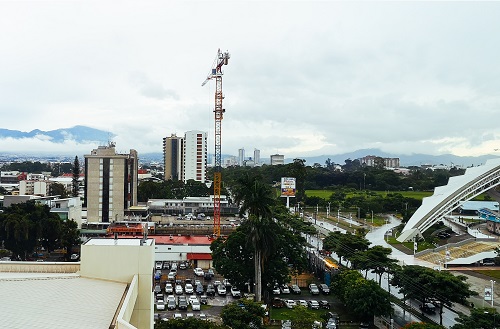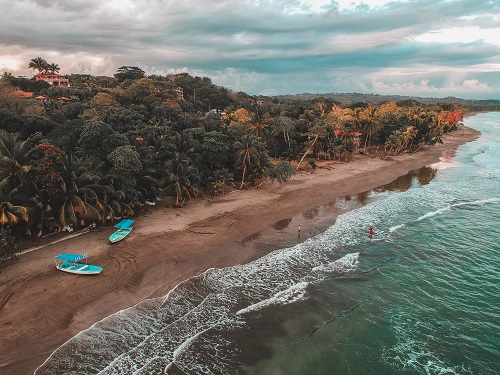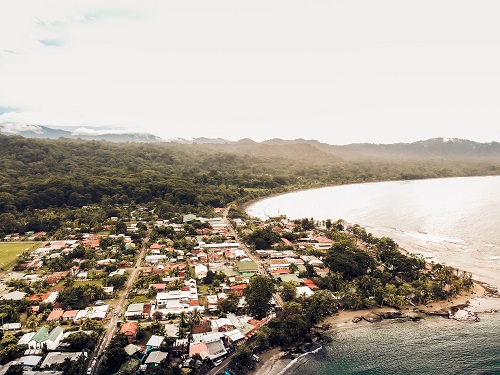Famous for its relaxed way of life and smiling locals, Costa Rica is a popular destination for expats. It regularly ranks as one of the world’s happiest countries. It’s no wonder, therefore, that Europeans and Americans alike are choosing to make this surfer’s paradise their long-term home.Costa Rica is divided into four regions, with Central Valley, Gold Coast and the Southern Zone housing the most expats. While the cost of living certainly isn’t as low as in many other Latin American countries, expats can enjoy great healthcare, good amenities and a high life expectancy. Plus, it’s a great place for green-fingered expats to live an eco-friendly lifestyle.
Thinking of settling down in one of the world’s most chilled-out countries? Here’s all you need to know about buying and renting property in Costa Rica.
Finding a property in Costa Rica
As already mentioned, the most popular areas for expats to live are Central Valley, Gold Coast and the Southern Zone. You can search for properties in these areas and others online, until you find one that meets your requirements.
A local real estate agent will know the areas well, and there are numerous agencies across Costa Rica. Ensure you find one that is reputable. Sticking with just one will generally get you the best service.
Keep in mind that there is no requirement for real estate agents to be licensed. This means anyone can set themselves up as an agent, so it’s worth hunting around for the best ones. A few well-regarded agencies include:
• ABC Costa Rica
• Expat Housing Costa Rica
• Coldwell Banker Costa Rica
• Brokers Costa Rica

How much does property cost in Costa Rica?
Property prices in Costa Rica are generally quite high. If you are looking to rent an apartment or house, you can expect to pay between $400 and $900 per month for a small apartment, and up to $3k per month for beach-side luxury condos or private villas. Although the rent prices are high, the cost of living is relatively low.
If you are looking to buy property, then you will find that prices vary. For example, a beachfront condo with great views will cost you upwards of $500,000, while an apartment in the capital, San Jose, will cost you around $1,600 per square metre. Wealthy US buyers are driving up property demand, particularly for oceanfront houses and villas.
The average prices in Costa Rica are as follows:
For rentals: A one-bedroom apartment in the city centre costs $500, and outside the city centre costs around $400.
For purchase: In the city centre, you’ll pay $1,600 per square meter, and outside the city centre, you’ll pay $1,450 per square metre.
Renting property in Costa Rica
Renting property in Costa Rica is fairly simple, and long-term leases are usually for a period of three to 12 months. You can find both furnished and unfurnished properties, although unfurnished ones will likely have no refrigerator or washer/dryer. Furnished properties will often come with cutlery, crockery and even bed linen.
The monthly price is almost always negotiable, so don’t be afraid to haggle. Your rental contract should include the name and details of the two parties, a legal description of the property, a detailed description of the property and its condition, and notes about the furniture and any other items that are included.
Changing utilities into your name will be difficult, so usually landlords will keep the power and water in their own name. However, these costs are not usually included in the rent.
Before renting a home, you should check it for damages, The easiest way to do this is to hire a home inspector. If you do not wish to do this, you should check the plumbing, roof and electrical systems yourself. What you see is what you get, and if something doesn’t work when you view the property, it’s unlikely to have been replaced when you move in.
The law in Costa Rica heavily favours renters, and landlords must make emergency repairs within 10 days. You will need to pay a deposit, which is usually equivalent to one month’s rent.
Questions to ask include:
• Does the property operate with weekly or monthly pricing?
• Does rent include the cost of maintenance, such as cleaning or gardening?
• How long is the notice period?

Buying property in Costa Rica
Foreigners have the same rights as citizens and residents when it comes to purchasing property, with just two exceptions. As a foreigner, you won’t be able to purchase an INDER registered property, or a property in a Maritime zone. You’ll only be allowed majority ownership if you’ve spent the last five years living in Costa Rica.
You may be subject to some restrictions, depending on where you are buying. The National Register will show any restrictions the property may have, as well as building restrictions on plots of land.
In Costa Rica, you’ll need to pay a deposit of around 10%. Like in many other Latin American countries, getting a mortgage as a foreigner is very difficult. You will need to obtain legal residency, which will mean renting for a long period of time. Owner financing is generally safe for both seller and buyer, with a loan to value (LTV) ratio of up to 50%. This is a good short-term option, for between two and five years.
The first stage of buying a house is making an offer. You and your agent will make a suitable offer, which is then presented to the seller. Once there’s an agreement in place, the 10% deposit (or whatever is agreed) should be paid within two weeks. This is usually held in an escrow account, and, in Costa Rica, third party companies are used. Final closing can be up to 60 days after both parties have signed the contract.
Property tax rates in Costa Rica are very low, just 0.25% a year. Closing fees can be expensive, but, in Costa Rica, the buyer pays half and the seller pays the other half. These fees normally come to around 4% of the purchase price.
You should always hire a lawyer when purchasing property, and never the seller’s lawyer, even if their fees are much lower. You should also hire a surveyor, and get a thorough home inspection before finalising the offer.
Once all of the above has been completed, you’ll receive your closing date and the property will officially be yours!

